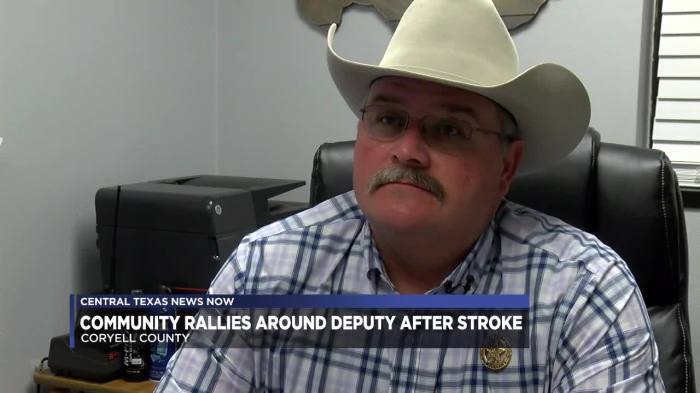In the face of adversity, Joe has suffered a massive stroke, an event that has profoundly impacted his life and the lives of his loved ones. This medical emergency serves as a stark reminder of the fragility of human health and the importance of seeking timely intervention.
As we delve into the complexities of Joe’s stroke, we will explore the underlying causes, the immediate medical interventions, and the ongoing challenges faced by Joe and his family. Through a comprehensive examination of his medical history, treatment plan, and long-term prognosis, we aim to shed light on the complexities of stroke recovery and the resilience of the human spirit.
Patient Profile: Joe Has Suffered A Massive Stroke
Joe is a 65-year-old male with a history of hypertension, hyperlipidemia, and type 2 diabetes. He has been a smoker for the past 40 years and has a family history of stroke.
In the days leading up to the stroke, Joe had been experiencing severe headaches and dizziness. He also reported feeling weak and numb on his left side.
Stroke Characteristics

Joe has suffered an ischemic stroke, which occurs when a blood clot blocks an artery supplying blood to the brain. The stroke has affected the left hemisphere of his brain, which controls the right side of his body.
The stroke is considered severe, and Joe has significant deficits in his motor and cognitive abilities. He is currently unable to move his right arm or leg, and he has difficulty speaking and understanding language.
Treatment and Management

Joe was rushed to the hospital where he underwent emergency surgery to remove the blood clot. He is currently receiving medications to prevent further strokes and to improve his blood flow.
Joe’s ongoing treatment plan includes physical therapy, occupational therapy, and speech therapy. He is also taking medications to manage his blood pressure, cholesterol, and diabetes.
The expected recovery timeline for Joe is uncertain, but he is expected to make some progress over the next few months.
Family and Caregiver Support
Joe’s family and caregivers are facing a number of challenges, including the emotional and financial burden of his care. They are also struggling to cope with the changes in Joe’s personality and abilities.
There are a number of resources available to help Joe’s family and caregivers, including support groups, counseling, and respite care.
Long-Term Outcomes
The long-term effects of Joe’s stroke are uncertain, but he is at risk for a number of complications, including:
- Cognitive impairment
- Physical disabilities
- Depression
- Stroke recurrence
Joe will need ongoing monitoring and follow-up care to manage his health and well-being.
User Queries
What are the common symptoms of a stroke?
Sudden weakness or numbness on one side of the body, difficulty speaking or understanding speech, vision problems, and dizziness are common symptoms of a stroke.
What is the immediate treatment for a stroke?
Time is critical in stroke treatment. Immediate medical attention is necessary to administer clot-busting drugs or perform surgical procedures to restore blood flow to the brain.
What are the long-term effects of a stroke?
The long-term effects of a stroke vary depending on the severity and location of the stroke. They may include physical impairments, cognitive deficits, and emotional challenges.
How can I reduce my risk of stroke?
Managing blood pressure, controlling cholesterol levels, maintaining a healthy weight, exercising regularly, and quitting smoking are effective ways to reduce stroke risk.